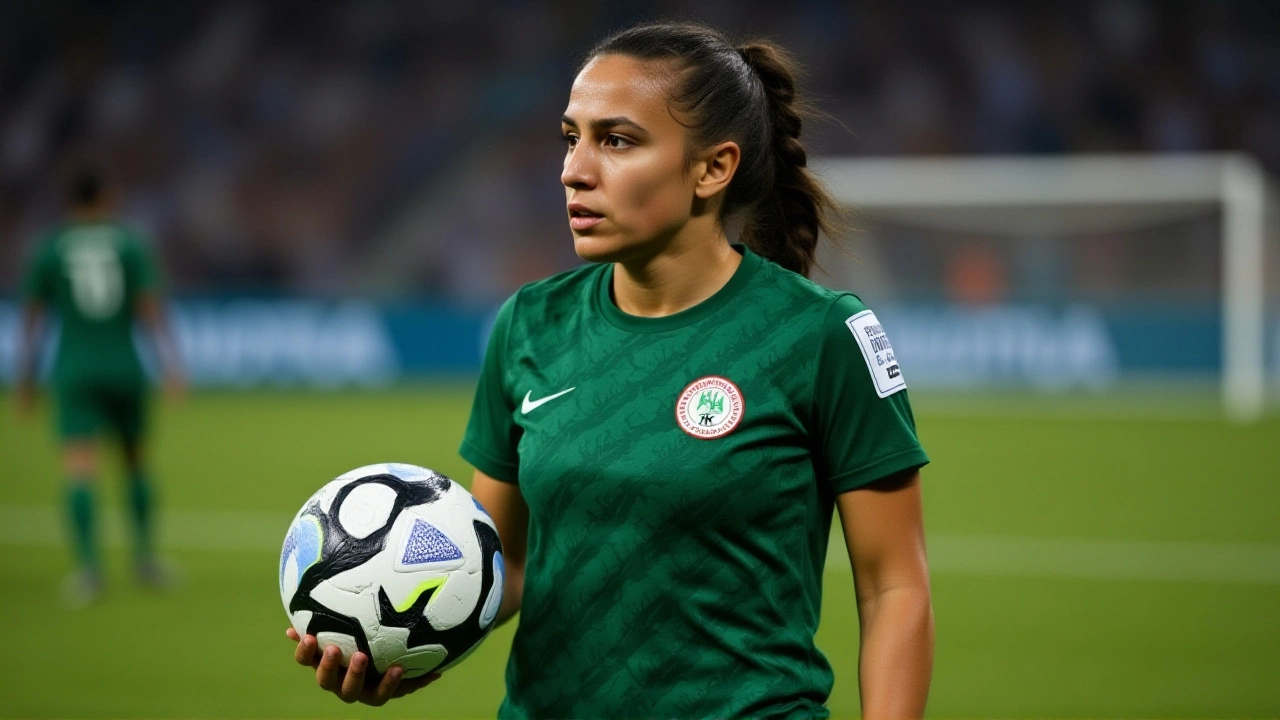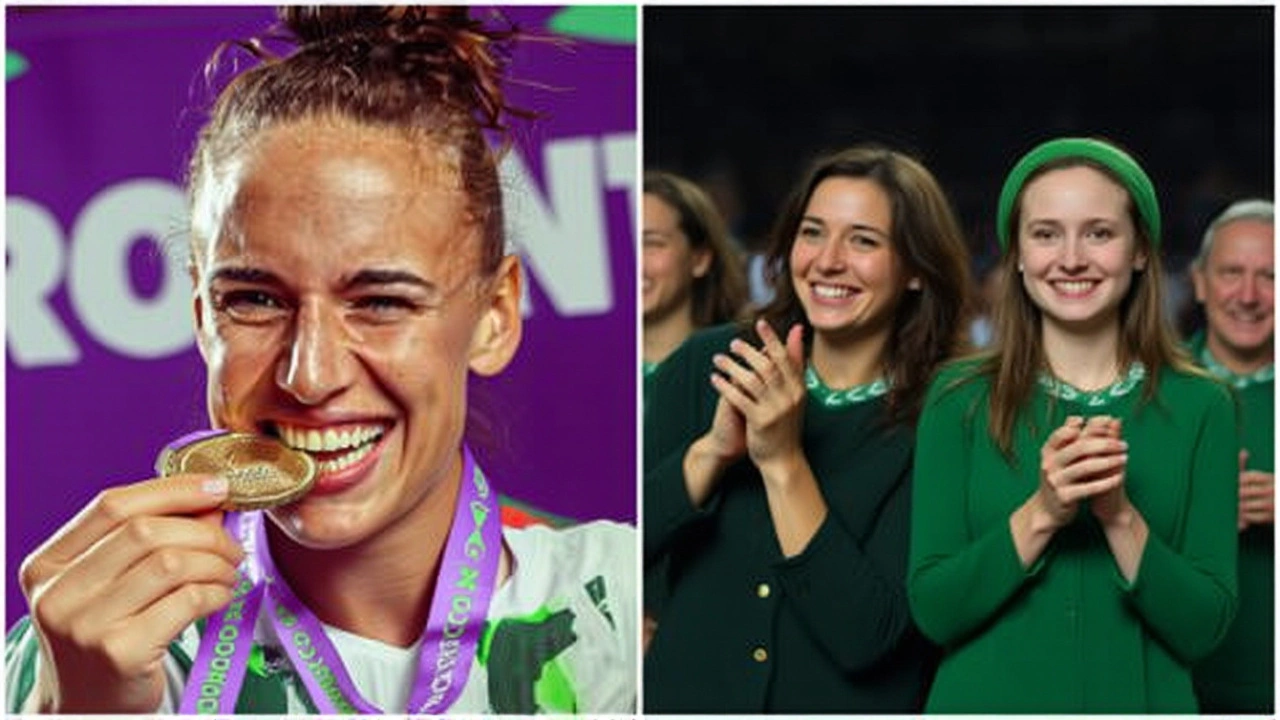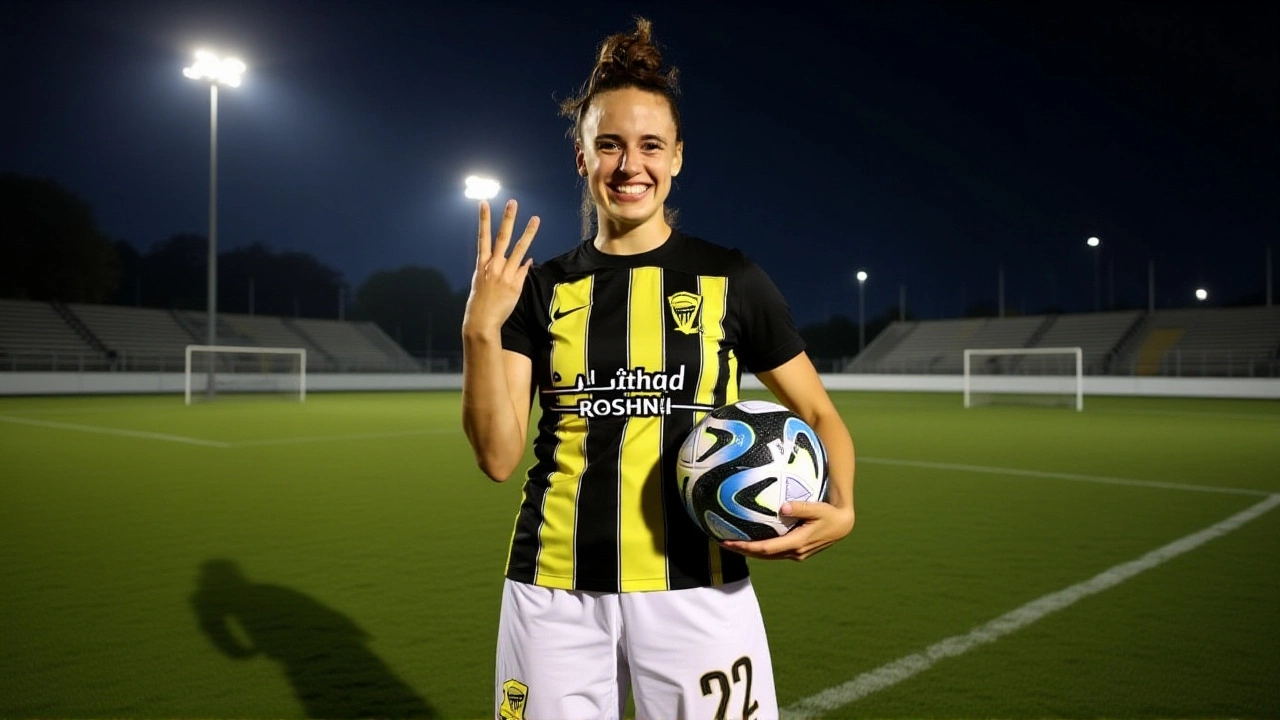When Ashleigh Plumptre, a 27‑year‑old defender for the Nigeria women's national team, confirmed her transfer to Saudi Arabia, the football world took notice. The move, finalized in September 2023, saw her leave Leicester City for Al‑Ittihad of the Saudi Women’s Premier League. It marked the first time a player vaulted straight from England’s Women’s Super League to the fledgling Saudi competition, a step that ignited both applause and criticism. The defender’s story is more than a contract change; it’s a window into purpose‑driven career moves, cultural clashes, and the evolving landscape of women’s football.
Background: From the Super Falcons to the World Stage
Plumptre’s rise was meteoric. After starring for Leicester City and earning a regular spot with the Super Falcons, she helped Nigeria reach the round of 16 at the 2023 FIFA Women’s World Cup. Though the team bowed out to England, Plumptre’s performances caught the eye of scouts across Europe and the United States. Offers poured in, but she kept looking for something more than a paycheck.
The Offer That Almost Got Lost
“My dad called me one night and said a Saudi club wanted me,” she recalled to BBC Sport. Her father and agent, Tim Plumptre, delivered the news. At first, Ashleigh flat‑out rejected it. “I was like, ‘No way,’” she said. Yet, with her Leicester contract expiring, she decided to explore all options – the UK, the US, Europe – before making a final call.
The turning point was a two‑day visit to Jeddah. The club’s president, coaching staff, and a handful of players sat down with her not to dissect tactics, but to talk about life, ambition, and personal values. "We barely mentioned football. We talked about who we are, what we love. That felt genuine," Plumptre said. The conversation shifted the needle from skepticism to conviction.
Why Money Wasn't the Driver
Financial terms were, as Plumptre puts it, “nice, but not the reason.” She emphasized purpose over profit, noting that the Saudi side offered a platform to grow the women’s game in a region where professional opportunities are just beginning to sprout. "It wasn’t about the money. It was about being part of something new, about a purpose that resonated with me," she explained.
Al‑Ittihad, meanwhile, secured a slot for up to six foreign players under the league’s 2022 professionalisation plan. The club’s vision, according to its sporting director, is to blend international experience with local talent, creating a pipeline that could eventually feed the national team.
Reactions: Praise, Protest, and the LGBTQ+ Fallout
The move sparked a wave of reactions. Nigerian fans celebrated the historic transfer, seeing it as a sign that African talent can command global attention. Yet, a vocal segment of LGBTQ+ supporters felt betrayed, arguing that joining a nation with a poor human‑rights record, especially regarding sexual minorities, sends the wrong message.
Plumptre acknowledged the pain. "I understand why some fans felt let down. My decision wasn’t an endorsement of every policy in Saudi Arabia," she said, adding that she hopes her presence can open dialogues about inclusion and reform.

On‑Field Success: From Al‑Ittihad to Olympic Qualification
Since arriving in Jeddah, Plumptre has added chapters to an already impressive resume. She helped Al‑Ittihad secure a top‑four finish in the league, extended her contract for another season, and played a pivotal role in Nigeria’s qualification for the 2024 Paris Olympics. Most notably, she captained the Super Falcons to a record‑tenth title at the 2024 Women’s Africa Cup of Nations (WAFCON), scoring a crucial header against Morocco.
"The standard here isn’t what I was used to in England, but we’re building something special," she admitted. Plumptre credits the league’s developmental focus, noting that local players are eager to learn.
Life in Saudi Arabia: Safety, Calm, and Unexpected Comfort
Off the pitch, Plumptre describes a surprisingly peaceful daily routine. "I feel safer and more at ease here than I did in the UK," she said. She points to quiet neighborhoods, close‑knit community events, and the low‑key lifestyle as stark contrasts to the media‑driven chaos often associated with the Kingdom.
Still, the environment isn’t without its challenges. Attendance at women’s matches remains modest, and cultural restrictions sometimes limit social interactions. Yet, club officials report gradual improvements in fan engagement, especially after the league introduced family‑friendly sections and live‑streaming deals.
Future of Saudi Women’s Football and the World Cup Dream
Saudi Arabia has set its sights on hosting a future Women’s World Cup, a goal that requires infrastructure, grassroots development, and global acceptance. Plumptre’s presence, she says, is a small but meaningful piece of that puzzle. "Patience is key. We need to grow step by step, the right way," she urges.
Analysts argue that the league’s success hinges on balancing foreign expertise with sustainable local talent pipelines. If the momentum continues, Saudi women’s football could emerge as a new hub for players seeking both professional growth and cultural exchange.

Key Takeaways
- Ashleigh Plumptre became the first English WSL player to sign for a Saudi Women’s Premier League club.
- Her decision stemmed from a search for purpose, not financial reward.
- The move sparked debate over LGBTQ+ rights and sports ethics.
- Since 2023, Plumptre has helped Nigeria win a record‑tenth WAFCON and qualify for the 2024 Olympics.
- Saudi women’s football remains developmental but shows steady growth in attendance and visibility.
What’s Next for Plumptre and Al‑Ittihad?
Plumptre’s contract runs through the 2025 season, with an option for extension. As the Saudi league expands its foreign‑player quota, more African talent could follow her trail. Meanwhile, the Super Falcons are gearing up for the Olympic tournament in Paris, where Plumptre hopes to showcase the blend of experience she’s amassed across three continents.
Frequently Asked Questions
Why did Ashleigh Plumptre choose a Saudi club over European offers?
Plumptre said the decisive factor was purpose. After a two‑day visit to Jeddah, she felt the club’s vision aligned with her desire for a new challenge and for helping grow women’s football in a developing market, rather than simply chasing a larger salary.
How has the move impacted her standing with LGBTQ+ fans?
Some LGBTQ+ supporters felt betrayed, believing her presence could be seen as endorsing Saudi Arabia’s restrictive policies. Plumptre acknowledged the disappointment, emphasizing that her personal choice does not equate to support for every aspect of the host country’s legislation.
What does her transfer mean for the future of the Saudi Women’s Premier League?
Her high‑profile signing signals that the league is serious about attracting international talent to raise its standard. It may encourage more African and European players to consider Saudi clubs, helping accelerate the league’s professionalisation and visibility.
How has Plumptre performed on the field since joining Al‑Ittihad?
She quickly became a defensive mainstay, contributing to Al‑Ittihad’s top‑four league finish and earning a contract extension. Internationally, she helped Nigeria clinch the 2024 WAFCON title and secure a berth at the Paris Olympics.
What are the broader social implications of her move?
The transfer spotlights the tension between career advancement and human‑rights concerns in sport. It also raises questions about how athletes can influence positive change in societies that are still evolving on issues such as gender equality and LGBTQ+ rights.
